Expanding Opportunities for Early-Career Researchers: CARP Officially Launched in Latin America and the Caribbean
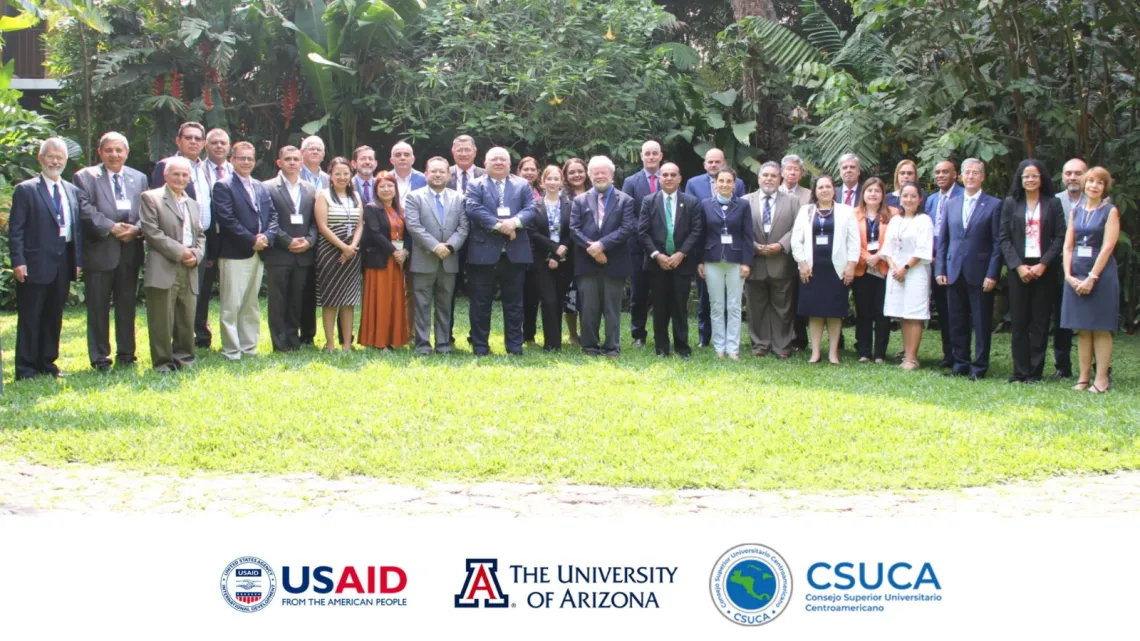
Rectors, vice-rectors, research directors from universities from the Latin American and Caribbean regions, USAID colleagues, and the CARP management team gathered for the kick-off meeting in Antigua, Guatemala, in May 2024.
In May, our Climate Adaptation Research Program (CARP) global team marked a significant milestone with the program's official launch in the Latin America and the Caribbean (LAC) regions. After months of preparation and coordination, CARP hosted a very successful two-day workshop on May 23 and 24 in the beautiful city of Antigua, Guatemala. The CARP LAC kick-off workshop convened rectors, vice-rectors, and research directors from universities across the region to introduce the program and gather feedback to tailor the program to the area. This high-level event also had the participation of representatives from USAID in Washington, DC, and Guatemala, further emphasizing the strategic significance of the program.
This event was the result of the collective efforts and dedication of the regional partner, Consejo Superior Universitario Centroamericano (CSUCA), as well as the University of Arizona team, and the commitment of the partner academic institutions from the region. The enthusiastic response and engagement from the academic community in the LAC region were truly inspiring as we look forward to the positive impact that CARP will have on research and collaboration in the region.
The CARP LAC Kick-off event brought together 43 participants over two days (17 females and 26 males). They represented 17 universities, 5 university networks, 2 agencies, and 11 countries. However, considering the university networks, more than 500 universities were represented at this kick-off event. The specific objectives of the CARP LAC kick-off event were:
Introduce CARP to the CSUCA authorities and university networks in Latin America.
Present the call for proposals for the LAC region and its requirements to participate.
Raise awareness about research topics related to climate adaptation and disaster risk reduction in LAC region and promote the integration of cross-cutting themes such as gender, equity, equality, and participation of vulnerable populations, including Indigenous communities.
Identify and compile the research priorities for Latin American universities related to climate adaptation topics to reduce disaster risk to generate useful information for decision-makers and society.
Learn how universities address local problems through research projects, including their previous lessons, to propose measures to strengthen CARP and its community.
The two days were filled with learning from each other, listening to the needs of the region, and gaining a better understanding of the context in which CARP will be implemented. The workshop began with a formal ceremony where the authorities provided welcoming remarks and officially kicked off the workshop.
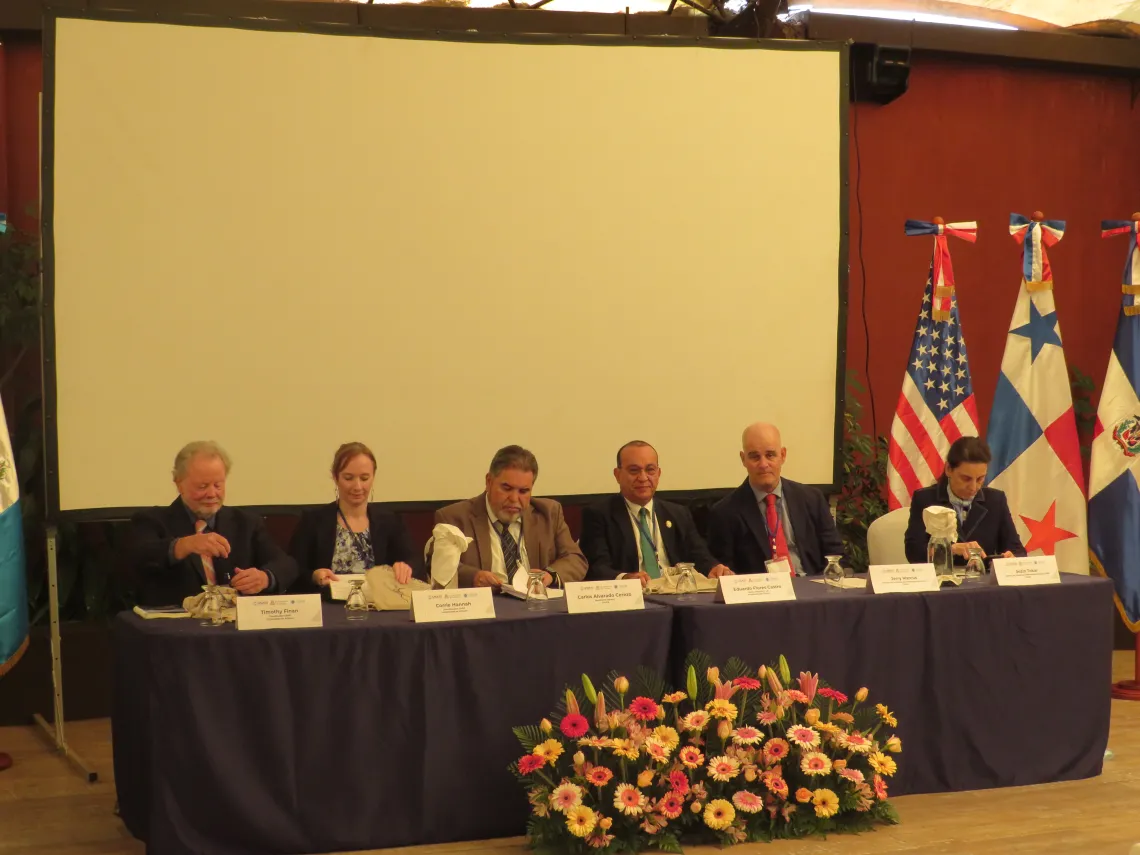
Photo 2. Authorities at the main table from left to right: Tim Finan, CARP Co-Director-University of Arizona; Corrie Hannah, CARP Director-University of Arizona; Carlos Alvarado, CSUCA General Secretary and CARP Director for LAC; Eduardo Flores, CSUCA President and Rector of the University of Panama; Jerry Marcus, Director of USAID Economic Growth Office in Guatemala; and Sezin Tokar, Lead Senior Hydrometeorological Hazards and Disaster Risk Reduction Advisor, USAID Bureau for Humanitarian Assistance.
The opening session highlighted the important contribution of CARP in supporting applied research on climate adaptation and disaster risk reduction in one of the most vulnerable regions. Carlos Alvarado, CSUCA General Secretary and Director of the CARP Regional Coordination Unit for LAC, set the stage with his opening remarks, highlighting the significance of CARP for the region. He called for collaborative support from the heads of the represented institutions to ensure the successful implementation of the program, emphasizing the importance of involving early career researchers to strengthen the universities across the region. Corrie Hannah, CARP Director at the University of Arizona, shed light on the four main strategies of CARP. These included working with early-career researchers, conducting applied research on climate adaptation and disaster risk reduction, engaging stakeholders, and building a community of researchers, practitioners, and policymakers in the Global South. Jerry Marcus, Director of USAID Guatemala's Economic Growth Office, referred to the importance of CARP for the region, highlighting, for example, the increase in forest fires in Guatemala. He emphasized the USAID localized research approach, directing funds to local partners and working closely with local governments, communities, higher education institutions, and finance institutions to collectively develop solutions.

Photo 3. Opening remarks during the protocolar session. A. Carlos Alvarado, CSUCA General Secretary and CARP Director for LAC. B. Corrie Hannah, CARP Director-University of Arizona. C. Jerry Marcus, Director of USAID Economic Growth Office in Guatemala.
The next session was facilitated by Tim Finan, Corrie Hannah, and Sonia Delphin from the University of Arizona CARP team. Sonia Delphin, CARP Regional Coordinator for LAC at the University of Arizona, emphasized that CARP is not only a program associated with the University of Arizona or the CSUCA - it's a collaborative effort. Therefore, the CARP team wants to ensure that the voices of all participants are heard to make CARP relevant to the context of LAC. Tim Finan and Corrie Hannah led the first part of the session and provided background information about CARP and its beginning. Sonia Delphin facilitated the second part which included an open discussion triggered by the question, “How can we tailor CARP to the LAC region?”. The feedback received from the heads of academic institutions from the region was incredibly valuable, as it will help shape CARP to be specific to the LAC region and consequently maximize CARP’s impact.
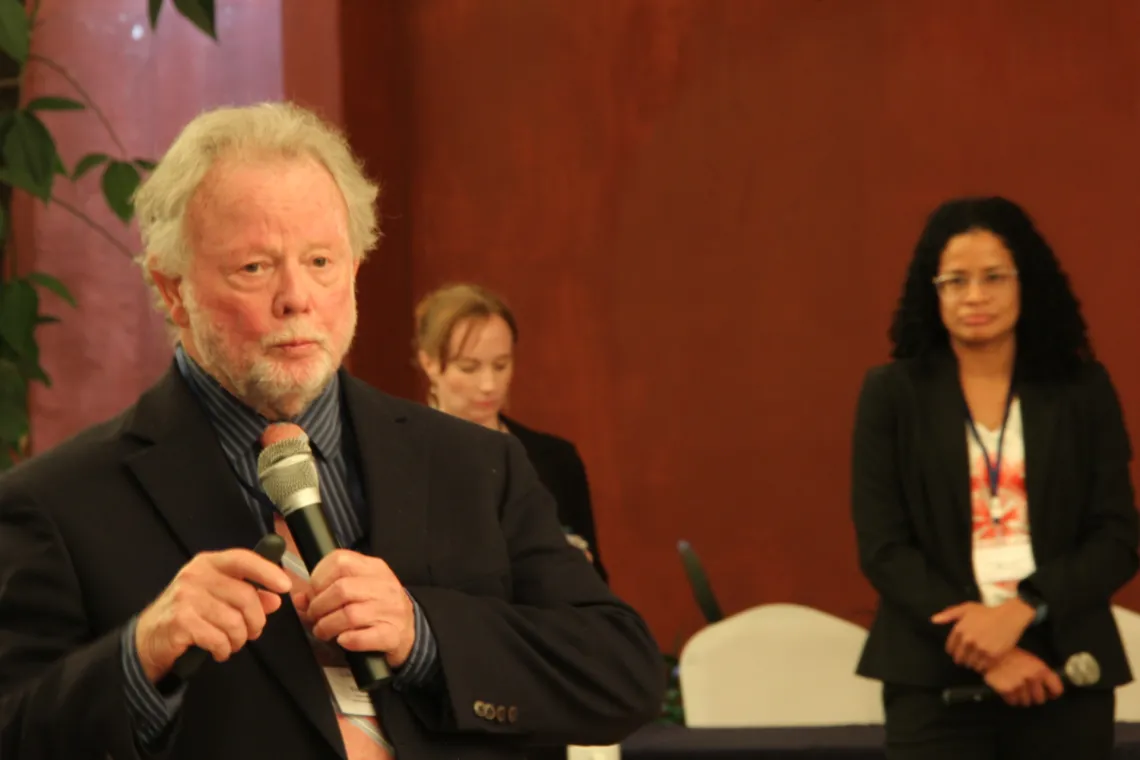
Photo 4. Tim Finan, Corrie Hannah, and Sonia Delphin from the University of Arizona CARP team facilitated one session during the workshop.
After the lunch break, Anabella Garcia, CARP Regional Coordinator for LAC at CSUCA, presented the specific objectives of CARP-LAC, along with more details about the two types of call for proposals: 1) for early career researchers and 2) for collaborations between higher education institutions. Following the presentation, the University of Arizona and CSUCA teams addressed participants’ questions and gathered comments for consideration and integration.
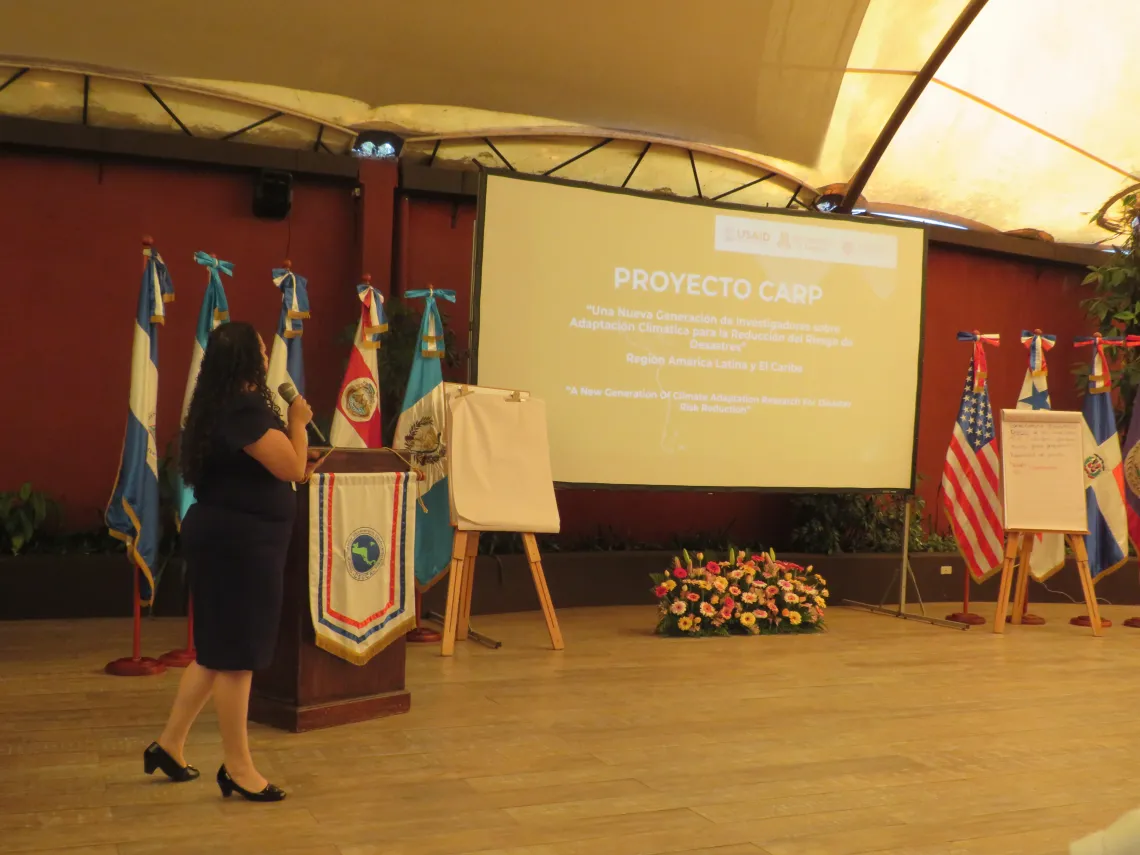
Photo 5. Anabella Garcia delivered her presentation about CARP LAC.
Day 1 ended with a cultural event organized by CSUCA, where participants gained knowledge about the culture of different regions in Guatemala. The performers were students who are part of the Ballet Group of the University of San Carlos, Guatemala. Later, all the participants enjoyed a welcoming dinner sponsored by the University of San Carlos, Guatemala at Casa Santo Domingo.
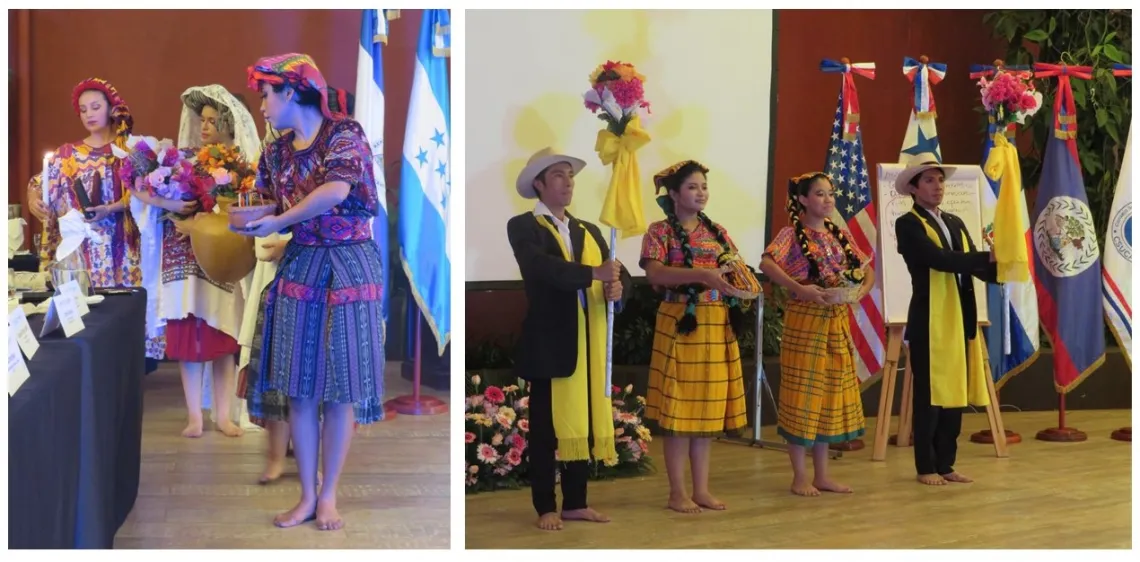
Photos 6 and 7. Students from the Ballet Group of the University of San Carlos, Guatemala
On the second day, the session began with Corrie Hannah and Sonia Delphin providing further explanation from the previous day. They clarified what CARP means by research impact and expressed the importance of sharing research findings in various ways, such as through policy briefs, social media, and presentations or discussions with stakeholders, decision-makers, and practitioners. One of the CARP's main objectives is to ensure that research findings reach beyond the university so that more people can benefit from them. They also offered examples to illustrate this concept and gave participants the opportunity to ask questions.
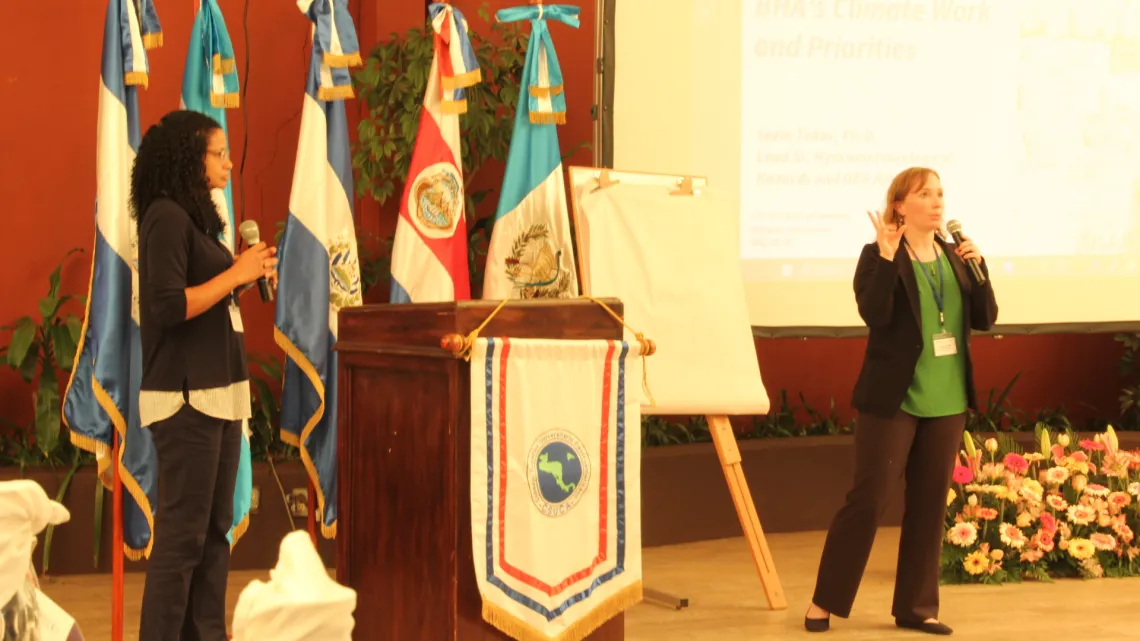
Photo 8. Corrie Hannah and Sonia Delphin explained the concept of research impact.
Then, Sezin Tokar presented on "Climate change impact and disaster risk in Latin America and the Caribbean," with a focus on USAID's work on disaster risk reduction (DRR) for humanitarian assistance. She started by defining terms such as DRR, climate change, climate mitigation, and climate adaptation to ensure clarity for all attendees. Furthermore, she highlighted the intersection between climate change adaptation and DRR to emphasize the focus of the USAID Bureau of Humanitarian Assistance, where CARP is hosted.
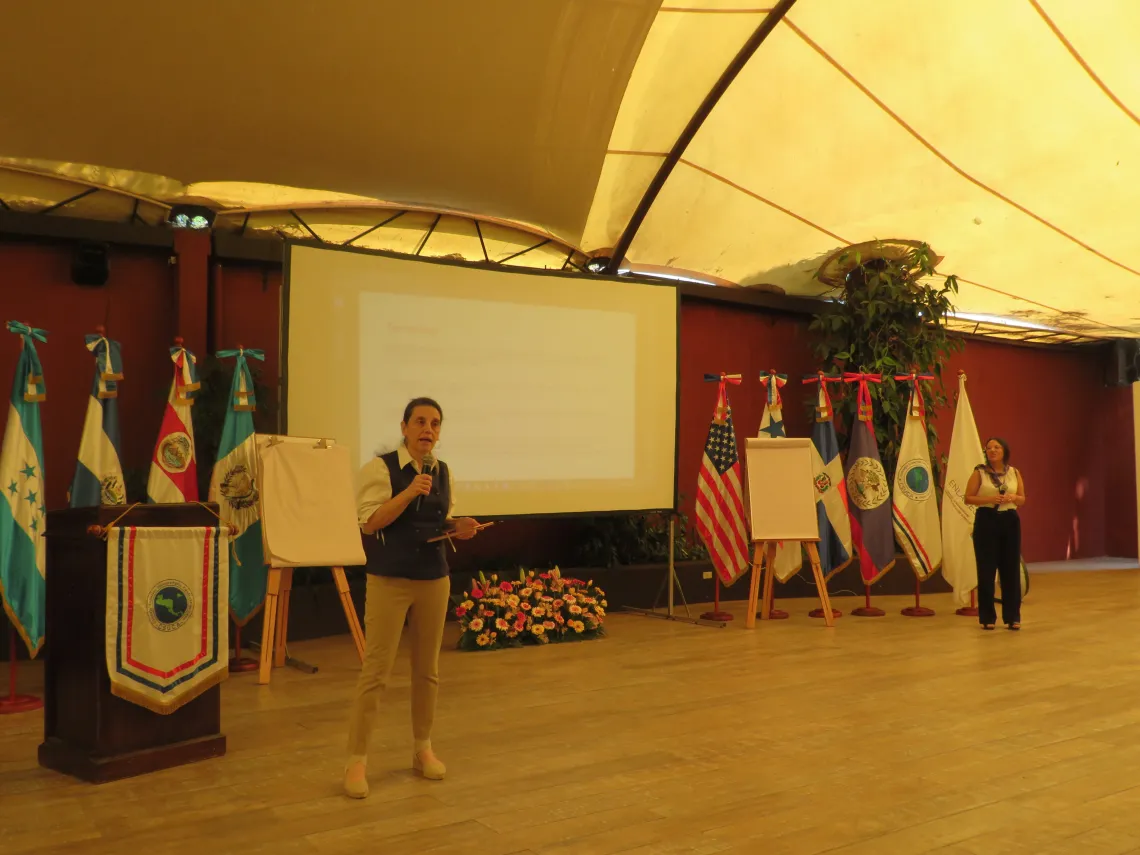
Photo 9. Sezin Tokar delivering her presentation.
Later, Sarah Palma Escobar and Sofía Vázquez, gender specialists from the United Nations Development Program (UNDP) in Guatemala, delivered presentations on the importance of inclusive and equitable research. They shared background information on the role of women and the disadvantages women faced in the region, as well as ways to include women in the development and implementation of projects.
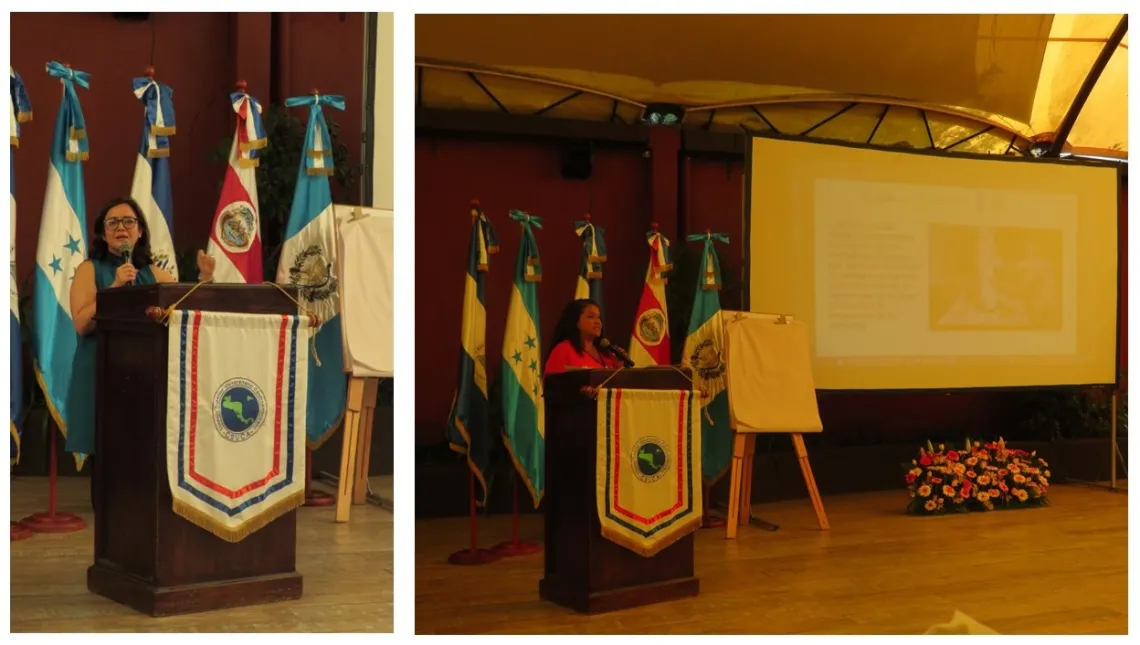
Photos 10 and 11. Sarah Palma Escobar and Sofía Vázquez, gender specialists from the United Nations Development Program (UNDP) in Guatemala.
Later, Sarah Palma Escobar and Sofía Vázquez, gender specialists from the United Nations Development Program (UNDP) in Guatemala, delivered presentations on the importance of inclusive and equitable research. They shared background information on the role of women and the disadvantages women faced in the region, as well as ways to include women in the development and implementation of projects.During the closing session, Carlos Alvarado discussed the importance of university engagement in CARP. He emphasized the need to disseminate the CARP calls for proposals so the researchers can learn about them. Alvarado also mentioned the importance of working more collaboratively and in a coordinated way to promote a more equitable system. He mentioned that the next step for CARP LAC would involve conducting an institutional diagnostic to identify areas that need to be strengthened and support universities. Additionally, he emphasized the importance of strengthening research on climate change adaptation and DRR in the region. Alvarado also presented the updates to the calls for research proposals, incorporating participants' feedback, and demonstrating the CARP team's commitment to building this initiative together.
The workshop concluded with a guided city tour to visit emblematic places in Antigua, Guatemala.
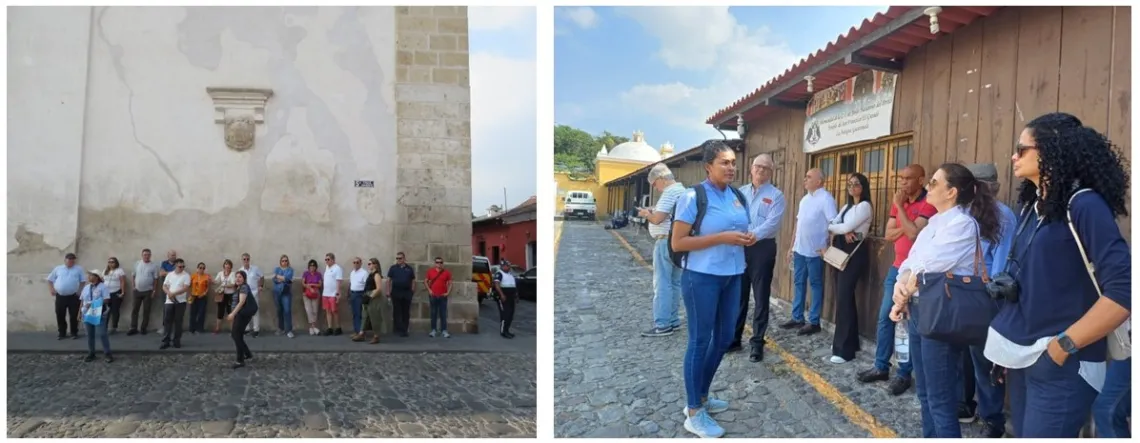
Photos 12 and 13. Guided city tour organized by CSUCA
After the workshop, the Call for Research Proposals for CARP LAC was officially launched on May 31st. The Calls for early career researchers and higher education institutions collaboration can be found on the CSUCA website.
Stay tuned for more updates as we embark on this exciting journey of fostering academic partnerships and researching climate adaptation and disaster risk reduction in Latin America and the Caribbean through the CARP program.
